- Home
- Tad Williams
Shadowheart s-4 Page 2
Shadowheart s-4 Read online
Page 2
He had fought all the way to the heart of Faerie because Lady Yasammez had commanded it. He had carried a mirror containing part of a god's essence all the way to Qul-na-Qar because Gyir the Storm Lantern, Yasammez' servant, had begged him to. And now he was carrying within himself the painful gift of the Fireflower, the life and thought and memory of all the kings of the Qar since the god Kupilas had fathered the line.
My blood comes from a god's blood. No surprise I have this dreadful storm in my head…!
But he didn't, and that was what finally struck him: since he had crossed over into this land, he had felt nothing in his head but his own thoughts: the Fireflower voices and memories had gone still. He had fallen back into the familiar glory of this solitude without even realizing how strange it now was.
"Saqri! Saqri, where have the voices gone?"
"If you mean the Fireflower ancestors, you cannot hear them now but you will again. Here you are no longer in your own land, where they can speak only into the ears of Crooked's children. We have crossed over into lands you have only glimpsed in the deepest and strangest of dreams. We are with the dead… and the slumbering gods."
And she flew on with Barrick running behind her, the dream of a man in the dream of a horse, chasing the queen of the fairies across the endless, empty lands.
The darkness was almost complete but Barrick was not frightened. He could see only what was in front of him, and that barely. Nothing spoke in his head but his own thoughts. Occasionally Saqri broke her long silences to give him encouragement or make some cryptic remark. At last they had gone so far into the valley that the barren hills climbed high on either side and the darkness became a sort of tunnel, with Saqri's whiteness the only thing he could see. "Where are we going?"
"We are there… I believe." Her thoughts were strangely hesitant. "The Valley of the Ancestors. I hope it is so, anyway…"
"Hope so? What do you mean? You've been here before, haven't you?"
She actually laughed. It had an edge of wildness. "How could I? These are the lands beyond-where the dead go. And I am still alive…!"
"But you… we're…" Suddenly the darkness and the deep-shadowed hills twisted, becoming something even deeper and stranger than before: Barrick felt as though, instead of running on a broad greensward, he now was galloping across an impossibly narrow bridge with nothingness yawning on either side.
The dead lands. The Valley of the Ancestors. The fear was growing so thick he could scarcely breathe. What has happened to my life?
"Quiet now." Saqri's voice was music in a haunting minor key. "We are close. We must not frighten them."
"They're frightened?"
"Only of life. Of too much care. Of the pull and grasp of memory." He could feel deep sadness in her words. "But I must bring all that and more to my brother."
Things moved around him now in the inconstant darkness, forms with some kind of independent existence from the grass and the hills. He could not see them, exactly, could only sense them as a man can feel when someone stands close behind him. These new forms seemed distant, almost empty, little more than wind and the impression of existence.
"These are the long dead, or perhaps the impressions those left behind when they moved on to other places." Saqri's voice seemed distant, her light scarcely more visible than the empty shapes around him. "Do not fear them-they hold no harm for you."
But he did fear them, not because they menaced him, but because they did not even seem to notice him or anything else. Were they simply shadows left behind, as Saqri said, or were they sunk so deep in death that they could not even be understood anymore by the living? It terrified him to imagine becoming such a thing some day.
"There." Saqri had moved a little closer, her swan-form faint as foxfire. "I see them-they are in the glade."
She led him into a murk of shadows that stood like trees. They were silvered ever so faintly by radiance from above, though no source was visible, as though the moon had let some of its light fall like dew before disappearing from the sky.
He saw them, then-a cluster of smeared, dully gleaming shapes that wavered as if seen through deep water or ancient glass. They were deer, or at least each bore a shining filigree upon his brow that might have been antlers. They moved restlessly as Barrick approached, but did not run.
"Do not go closer," Saqri told him. "They can smell the life on you. They may not remember it but they know it is foreign to this place."
Now he could see something brighter in the wavering light-eyes. The deer-shapes were watching him. "What do we do?"
"You? Nothing… yet. This first task is set only for me." And he felt her voice stretch out as her wings had, gently enfolding the herd before them with her words. "Listen to me, all you lords of winds and thought. I seek the one who in life was Ynnir, my brother. I am Saqri, the last daughter of the First Flower."
Barrick heard a voice, or felt it sighing like the wind in a tangle of branches. "What do you want? You do not belong here. Do the black hellebores still bloom in the Dawnflower's garden, or has the Defeat finally come?"
"It has not come yet, but it may be upon us with the next breath, my fathers. I have no time to waste, even in this timeless place. Send me Ynnir."
"The youngest of us… comes…" The voice was fading even as it spoke.
And then another shape appeared before them, closer and clearer than the others, a great stag whose gleam was far more vibrant than those of its older brethren. A lavender glow hung between its spreading antlers, the warmest thing in all of that cold, dark valley.
"Saqri?" it said after a long silence. "Beloved? How have you come here?"
"By roads I should not have traveled, and on which I may not find my way back, even if you help us." Her voice was as calm as ever, but some tight-drawn note in it told Barrick that this was not a happy meeting. "If there is to be any chance at all we must be swift. Come back with us, Brother. Your manchild is overwhelmed by what you have given him-his blood boils with it. Come back and help him to live with the terrible gift of the Fireflower."
The great stag lowered its head. "I cannot, Sister. Every moment it is harder to think as you think. Every moment the current pulls me farther into the river of forgetfulness. Soon the only part of me that will still touch the world will be that part which is of the Fireflower."
"But you must…!"
"You do not understand. You do not understand… what it would cost me."
Saqri was silent for a long moment. "Even to save the manchild, you will not come? You would abandon your own last and greatest gamble?"
The great stag raised his head. His eyes for a moment took on the same lavender gleam as the light that shimmered above his brow. "Very well, my sister… my most beloved enemy. The victory is yours. Every instant I stay in the between-lands, the House of Forever draws away from me… but I will do my best." The beast lowered its pale head like a prisoner awaiting the headsman's ax. "I will give what I have. I hope that it is enough."
2
A Letter from Erasmias Jino "It is agreed by all men that the holy Orphan was born of lowly sheep herders in the hills of Krace during the reign of the Tyrant Osias."
-from "A Child's Book of the Orphan, and His Life and Death and Reward in Heaven"
Briony thought that traveling with even a small army-and Eneas kept reminding her that his Temple Dogs made an extremely small army, scarcely even a battalion-was like living in a movable city, one that had to be taken down every morning and set up again the next evening. Even with a group of men as hardy as the prince's troops, swift riders who needed little in this spring weather beyond bedrolls and some source of water, they still could travel each day only as far as caution permitted. Few people were on the roads in this strange year, and those who were often had traveled no farther than from one walled town to the next, so information about what lay beyond the Southmarch border was scarce.
Every day took them farther north, winding up King Karal's Road (named after one of Eneas
' most famous ancestors) out of Syan and through the lands that lay between it and the March Kingdoms, mostly tiny principalities who offered token allegiance to the throne in Tessis or the throne in Southmarch, but which only existed because the long era of peace had allowed them to keep their soldiers at home. Now that the north was in chaos they were less happy and less hospitable than they had been in the past.
They had discovered one such county seat near Tyosbridge. The land's master, Viscount Kymon, had refused to let Prince Eneas and his men inside the walls, although it would have brought a great deal of money into the pockets of the town merchants. Eneas and his dozen or so officers (with Briony among them) had been invited to spend the night at the viscount's hall but Eneas had refused, furious at the implication that his men could not be trusted-or worse, that he himself could not be trusted. They had spent the night instead camped outside with the men, something Briony admired greatly as a gesture. Still, a part of her could not help regretting the lost chance at a night on a decent bed. Between sleeping on the ground with the players and the same now with the Syannese soldiers, she had largely forgotten how it felt to sleep on the soft beds of Broadhall Palace, although she remembered very clearly that she had liked it.
The next day Eneas marched his men back onto the Royal Highway. He scarcely glanced up at the viscount's walled stronghold on the hill, but more than a few of the soldiers gave it a wistful look as it disappeared behind them.
"It's just as well," Eneas told Briony and his chief lieutenant, a serious young knight named Miron, Lord Helkis, who treated the prince with the respect normally given to a father, though Eneas was only a few years older. "They would only lose their edge in a city, anyway. Cities are terrible places-full of idlers and thieves and wicked women."
"Truly?" Briony asked. "That seems a strange thing to say. Don't your father and the rest of your family live in Tessis, the grandest city in Eion? Don't you live there yourself?"
Eneas made a sour face. "That is not the same, my lady. I live there because I must, and only when I must, but I prefer to live in camp-or in my hall in the mountains." His handsome face was serious-a little too serious, Briony thought. "Yes, that is a place you must see, Briony. From the upstairs windows you can see all the way down the valley-not a person in sight but a few shepherds and their flocks in the high meadows."
"It sounds… very pretty. And I'm sure the shepherds like it, too. But is there nothing good to be said about cities-or the royal court?"
He looked at her a little mistrustfully, as though she might be trying to trick him. "You saw what a court is like. You heard them whispering about you. You saw what they did to you, because you are from a quieter, smaller place and not used to their ways."
Briony raised her eyebrow. Her problem in Tessis had been that she had enemies, one of them the king's mistress, not necessarily that she was an innocent country girl who did not understand how to protect herself. As if no one had ever tried to kill her until she got to Syan! She wondered if that was part of what Eneas liked about her-that he thought of her as little more than a peasant girl, although one who had a stubborn, forward streak.
"In any case, Highness," she replied, "some of us like thing things that can be found in cities, and even at court-dancing and music, theater, markets full of things from other places…" Just talking about it reminded her of the delight she had felt as a young girl when her father showed her some of the more exotic items to be found in Market Square, the stuffed lizard from Talleno that looked like a tiny dragon, the huge skull of a strange, horned animal from somewhere beyond the Xandian desert, even the chest of spices from that continent's wet, hot jungles, not a one of them familiar except good Marashi pepper, which always made her nose wrinkle. She could still remember the anxious merchant, a little Kracian who had bounced up and down on his heels in front of the king, smiling and spreading his hands as if to say, "All this is mine!" Her father had bought the stuffed lizard, which had sat in her room for years until one of the dogs finally chewed it up.
Eneas was not thinking of the same kind of pleasant memories, to judge by the look on his face. "Cities! I despise them. I beg your pardon, Princess, but you cannot guess the kind of trouble they make for a ruler. The ideas that ordinary people get into their heads when they live in a city! All day long they see their neighbors wearing garments too fancy for their station, or they see nobles acting no better than the peasants themselves, until nobody knows where he belongs or what he is supposed to do. And theaters! Briony, I know you have a sentimental attachment to those players with whom you traveled, but you must know that most theaters are little better than… forgive my rough speech, I beg you, but it must be said… little better than brothels when it comes to the morals of the players. They parade in front of drunken men-some of the players dressed as women!-and frequently hire themselves out like common prostitutes. Again, I beg your pardon, but the truth must be told."
Briony tried not to smile. It was true that many of the players were a little loose in their morals-the treacherous Feival Ulosian, for one, had kept a string of wealthy admirers up and down the north of Eion-but she just couldn't see it with the same indignation Eneas felt. If the prince's beloved shepherds were so much better behaved, it could only be for lack of human companionship out there on the windy hillsides. Then again, they couldn't be as chaste as all that-little shepherds had to come from somewhere, didn't they…?
"And why shouldn't ordinary people come together at a market or festival?" she said out loud. "Why would the gods have given us festivals if we were not supposed to enjoy them?"
Eneas shook his head. "That's just it. They didn't mean for such heedlessness to accompany their celebrations-they couldn't have! If you had stayed in Tessis longer you would have seen the Great Zosimia, and then you would know the truth. People dancing naked in the streets! Common folk mocking the nobles-and the drunkenness and fornication! Again I beg your pardon, Princess Briony, but it is heartbreaking to see the lawlessness that has become ordinary in the cities. And not just on Great Zosimia but on Gestrimadi, Orphan's Day, even Kerneia-you need but name it, and you will find another day when the common folk turn their backs on honest toil and think of nothing but wine and dancing!"
As grateful as she was to him, Briony was beginning to think that Eneas was in some ways a bit of an old stick. "But the nobles celebrate all these festival days and more besides. Why shouldn't the common people have the same privilege? They have the same gods."
Eneas frowned at her jest. "Of course they do. But it is the duty of the nobles to provide an example. The lower classes are like children-they cannot be allowed to do everything their elders are allowed to do. Would you permit a child to stay up all hours, drinking unwatered wine? Would you let a child go to the theater and see a man dressed up as woman kiss another man?"
Briony wasn't sure what she thought. She had heard sentiments like the prince's many times and had generally found herself agreeing-after all, if the common people could truly govern themselves then the gods would not have made kings and queens and priests and judges, would they? But this last year had made her look at things differently. Finn Teodoros, for instance, was one of the wisest people she'd ever met, and yet he was the son of a bricklayer. Nevin Hewney's father had been a cobbler but Hewney was still acknowledged to be a great playwright, better than dozens of writers from more noble backgrounds. And even the people she had met on the road while she was traveling in disguise had seemed little different than the nobles of the Southmarch or Tessian court except in richness of clothing and sophistication of manners. Certainly her own brother Barrick always said that the lords and ladies of Southmarch were only perfumed peasants-wouldn't the opposite be just as true, then, that the peasants themselves were only unbathed nobles…?
"You have gone silent, my lady," said Eneas with a worried look on his fine face. "I have been too free with talk of rough matters."
"No," she said. "No, not at all, Prince Eneas. I am just thinking about t
he things you've said."
As they rode into the southeastern corner of Silverside, Briony discovered she could barely recognize her own country, her father's and grandfather's kingdom. There was little evidence out here of the siege of Southmarch, or in fact any trace of the fairy army at all-the Qar had passed far to the east when they marched down from beyond the Shadowline-but even in this relatively undisturbed spot, it felt as though Briony and the Syannese had arrived in the middle of an icy winter instead of a fairly mild spring. Fields lay fallow, and those that had been planted were barely half-seeded, as though there had not been enough people to do the work. In other places entire villages lay deserted, clusters of empty cottages like the nests of birds after fledgling season.
"The not knowing, that's what it is." The weary innkeeper was closing up his roadside hostel in the Argas River Valley and was only too happy to sell most of what he had left to the prince's moving town. "First we were feared the Twilight People were coming this way-people said the fairies were burning all the towns north of the Syannese border. They never came, but people came through from the east, running away-people whose towns were burned up, and they had terrible tales to tell. That scared away lots of our local folk, right there. After a while, though, hardly anybody using the road did for most of the rest of us. There are still people in these parts, especially the ones up in the hills, or the towns with high walls, but the villages along the road are all but empty." He shook his head, a man suddenly aged by fear and uncertainty. "And just like that, it all goes. You think it will never change but that's a lie. Things can change in a day."
In an hour, thought Briony. In a heartbeat. She was saddened by the innkeeper's confused, frustrated face, and saddened even more to know it would be a long time if ever before she could give these people any real help.
But here is something that the nobility can offer, she thought. In bad times, a king or a queen can be a rock for the waters to crash against, so those less strong are not washed away.

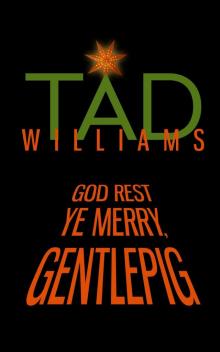 God Rest Ye Merry, Gentlepig
God Rest Ye Merry, Gentlepig Tailchaser's Song
Tailchaser's Song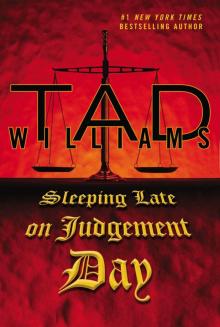 Sleeping Late on Judgement Day
Sleeping Late on Judgement Day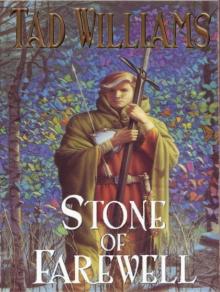 Stone of Farewell
Stone of Farewell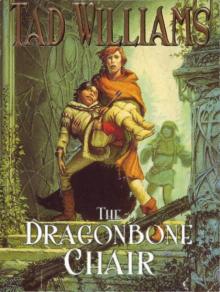 The Dragonbone Chair
The Dragonbone Chair Sea of Silver Light
Sea of Silver Light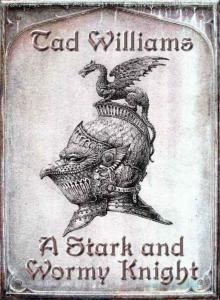 A Stark and Wormy Knight
A Stark and Wormy Knight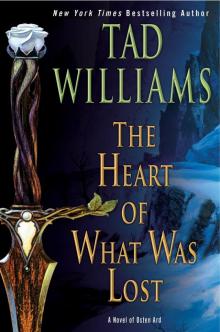 The Heart of What Was Lost
The Heart of What Was Lost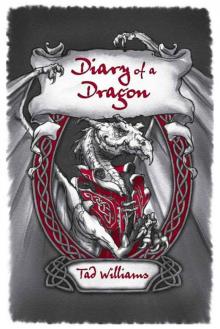 Diary of a Dragon
Diary of a Dragon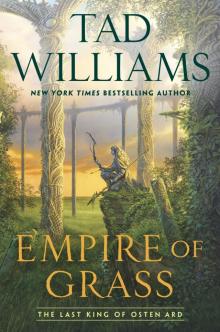 Last King of Osten Ard 02 - Empire of Grass
Last King of Osten Ard 02 - Empire of Grass To Green Angel Tower, Volume 1
To Green Angel Tower, Volume 1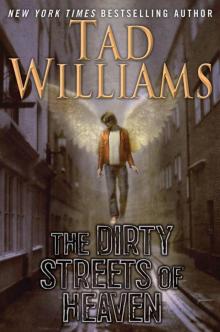 The Dirty Streets of Heaven
The Dirty Streets of Heaven River of Blue Fire
River of Blue Fire The Very Best of Tad Williams
The Very Best of Tad Williams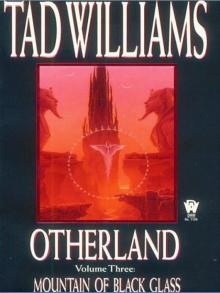 Mountain of Black Glass
Mountain of Black Glass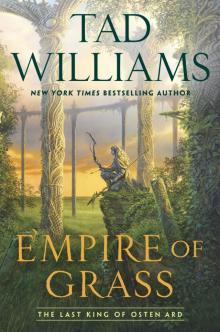 Empire of Grass
Empire of Grass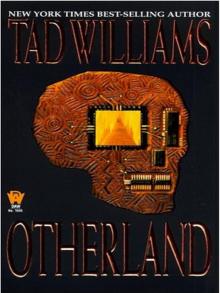 City of Golden Shadow
City of Golden Shadow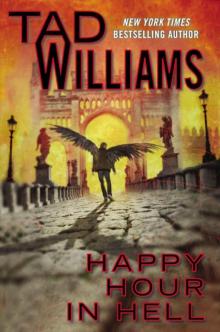 Happy Hour in Hell
Happy Hour in Hell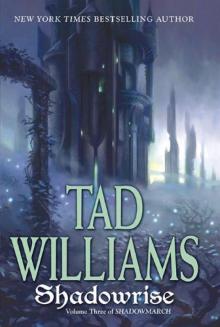 Shadowrise
Shadowrise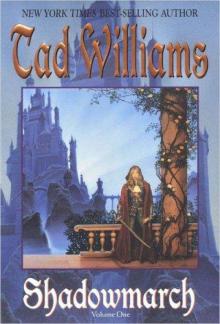 Shadowmarch
Shadowmarch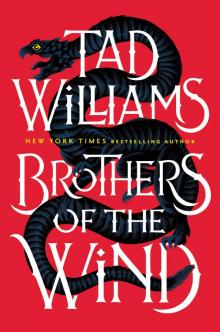 Brothers of the Wind
Brothers of the Wind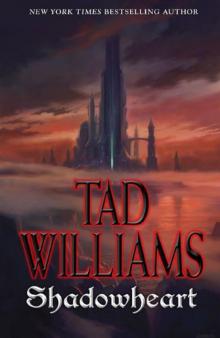 Shadowheart
Shadowheart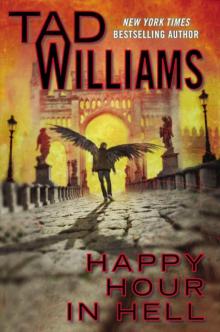 Bobby Dollar 02 - Happy Hour In Hell
Bobby Dollar 02 - Happy Hour In Hell The War of the Flowers
The War of the Flowers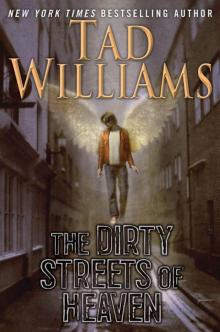 The Dirty Streets of Heaven bd-1
The Dirty Streets of Heaven bd-1 Tad Williams - The War of the Flowers (retail) (pdf)
Tad Williams - The War of the Flowers (retail) (pdf) Shadowheart s-4
Shadowheart s-4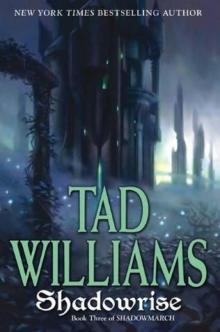 Shadowrise s-3
Shadowrise s-3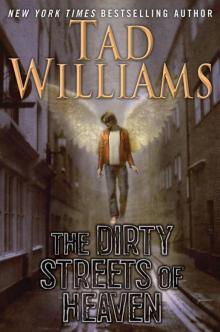 The Dirty Streets of Heaven: Volume One of Bobby Dollar
The Dirty Streets of Heaven: Volume One of Bobby Dollar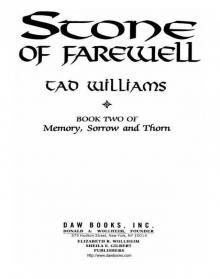 The Stone of Farewell
The Stone of Farewell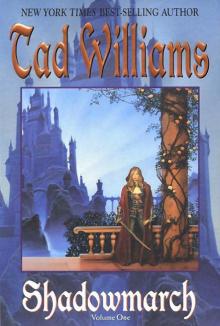 (Shadowmarch #1) Shadowmarch
(Shadowmarch #1) Shadowmarch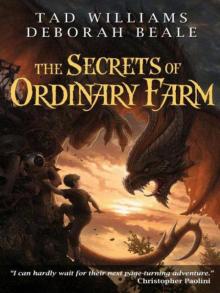 The Secrets of Ordinary Farm of-2
The Secrets of Ordinary Farm of-2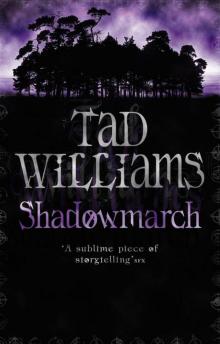 Shadowmarch s-1
Shadowmarch s-1![Bobby Dollar [04] God Rest Ye Merry, Gentlepig Read online](http://i1.bookreadfree.com/i1/04/06/bobby_dollar_04_god_rest_ye_merry_gentlepig_preview.jpg) Bobby Dollar [04] God Rest Ye Merry, Gentlepig
Bobby Dollar [04] God Rest Ye Merry, Gentlepig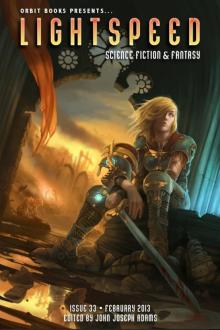 Lightspeed Issue 33
Lightspeed Issue 33 Sea of Silver Light o-4
Sea of Silver Light o-4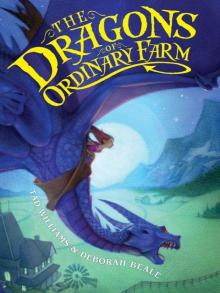 The Dragons of Ordinary Farm of-1
The Dragons of Ordinary Farm of-1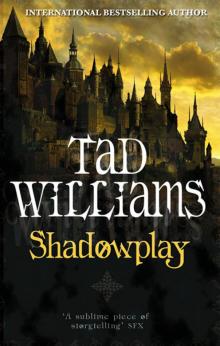 Shadowplay s-2
Shadowplay s-2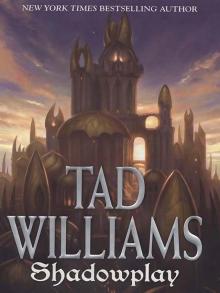 (Shadowmarch #2) Shadowplay
(Shadowmarch #2) Shadowplay